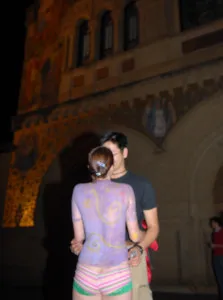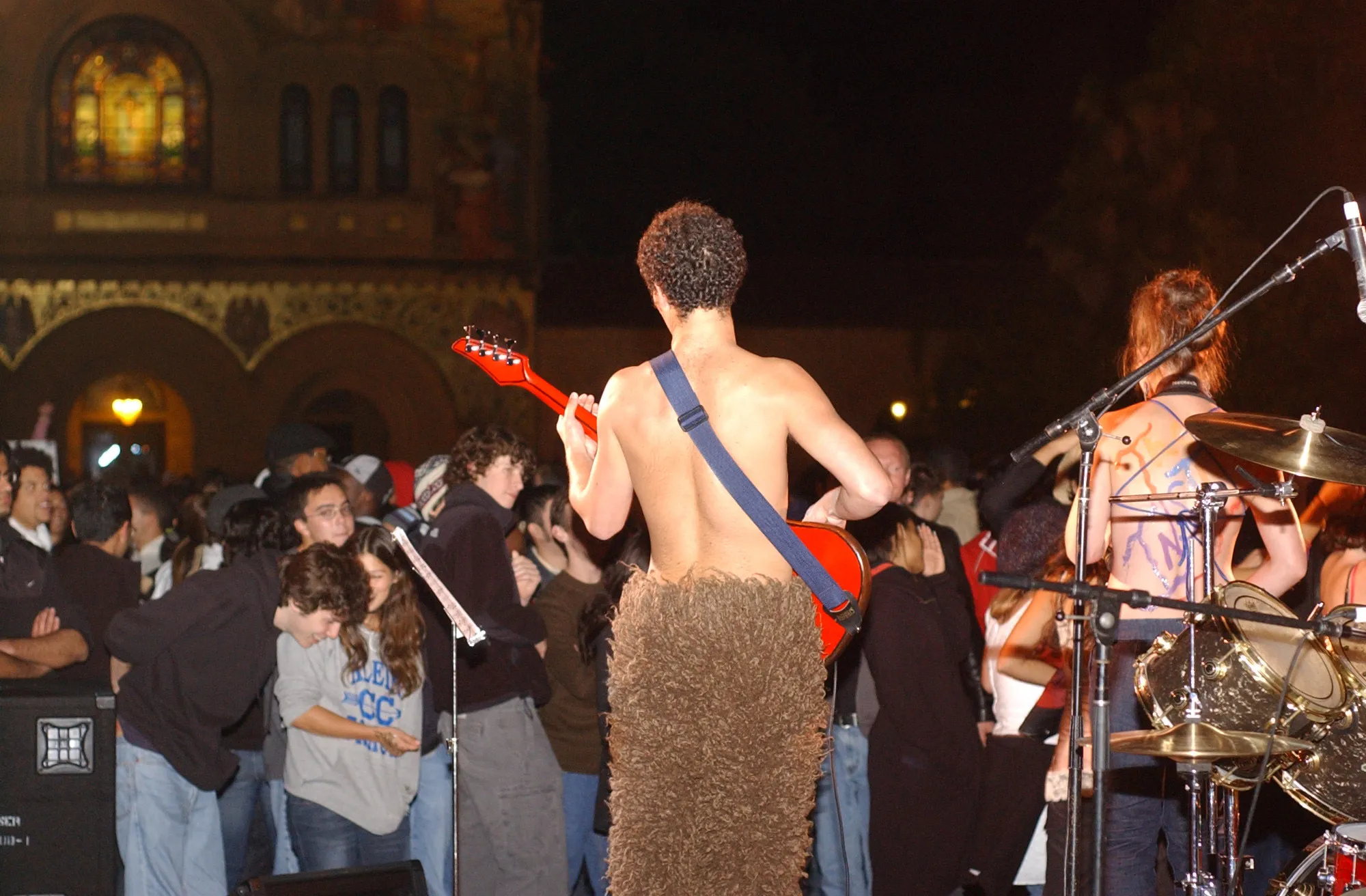Stanford has more than a few odd traditions, from rallying the freshmen with Band Run and making out with the Tree once a year to jumping around campus fountains and screaming out windows when finals come around. But only one tradition runs through almost all the others– nudity.

And while co-ops organize clothing-optional events most frequently, not all proud birthday-suit-wearers belong to the co-op community.
Co-ops Synergy, Columbae and Chi Theta Chi are famous for their residents’ proclivity for baring skin, but some all-campus parties, like 680 Lomita’s Exotic Erotic and Kappa Sigma’s now-defunct Foam Party, also encourage at least partial nudity.
Stanford Sierra Camp is another non-co-op group that is known for its comfort with nudity. However, most of the nudity from Sierra Camp occurs far from campus, at camp in Fallen Leaf, Calif.
“To be able to show who you are completely… and not hiding any part of you, is a really liberating feeling,” said Mia Divecha ’13 who has previously worked at Stanford Sierra Camp.
For the modest strippers, body paint covers up what clothing doesn’t.
“Especially at Full Moon [on the Quad] where there are more freshmen, [body paint] makes the nakedness sillier and less intimidating,” said Elizabeth Matus ’14, a Synergy resident. “We’re not trying to make anybody feel bad about being naked; we’re just trying to lighten the mood.”
“It’s cool to use your body as a canvas for art,” said Francisca Gilmore ’13, Columbae community manager.
The Honor Code and Fundamental Standard are silent about nudity and though it is illegal for someone to “willfully and lewdly” expose themselves in public according to the California Penal Code, the Stanford University Department of Public Safety (SUDPS) interprets the law on indecent exposure liberally.
“The important aspect of this law is the introduction, which indicates the behavior must be willful and lewd… As a general rule, police officers are taught that nudity in and of itself is not a crime,” Police Chief Laura Wilson said in a statement to The Daily.
Students who choose to shed their clothing on campus claim lewdness is not the goal, but rather acceptance and trust.
“It’s not about being naked, it’s about being comfortable and having fun,” Gilmore said.
“It really helps when you get a bunch of people of… different shapes and colors to… make people realize that if this person can run around naked and is comfortable… then maybe I could too,” Matus said.
In 2007, a group of students even used nudity as a form of protest against clothing made in sweatshops bearing the Stanford University logo.
Communities such as co-ops and Sierra Camp that engage in group nudity believe the community’s closeness creates a trusting atmosphere that allows students to feel comfortable clothes-free.
“I think when that when that care is there, there is a comfort level that people have with each other, and I think there is less fear of judgment,” Divecha said.
However, people from Synergy, Columbae and Stanford Sierra Camp all emphasized that part of the trust and comfort in their community included being comfortable enough to say, “Enough nudity.”
“We encourage people to find their own comfort level in the house,” Gilmore said.
Gaieties and Full Moon on the Quad have passed, though students still have several reliable chances to see their classmates in the nude, notably the libraries during Dead Week and Spring Quarter Band Run.
“I get naked to feel body-positive,” said Synergy resident Elias Rodriques ’13. “Once you’re out there it’s like, ‘Well, it’s not that big of a deal. This is my body.’”
